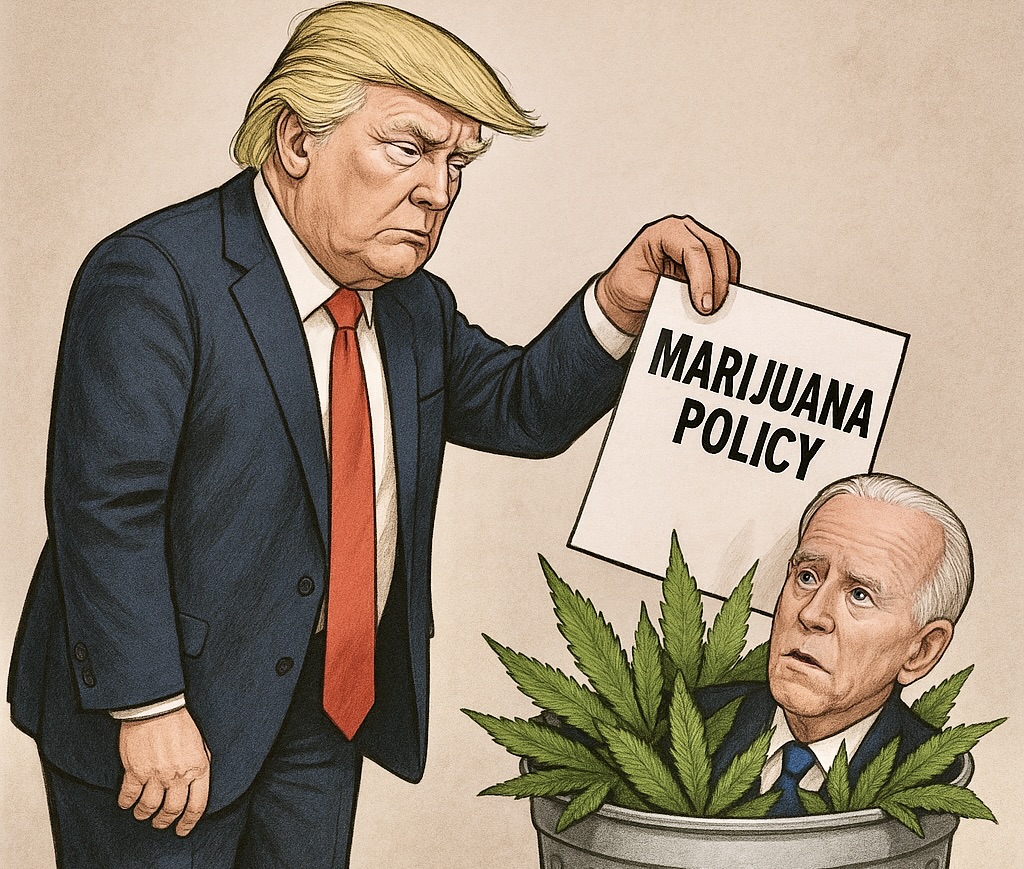WASHINGTON, DC / ACCESS Newswire / October 21, 2025 / A quiet revolution is shaking the foundations of Washington's most entrenched bureaucracy. The Department of Justice (DOJ) has conceded that the DEA's internal court system-long used to stall medical marijuana research and punish innovators-was unconstitutional from the start.
At the same time, new DEA Administrator Terrance "Terry" Cole has inherited an agency riddled with dysfunction, scandal, and a seven-year record of deliberate obstruction.

For MMJ BioPharma Cultivation, the company that exposed the DEA's unlawful system through its federal lawsuit, the moment represents both vindication and opportunity.
Constitutional Earthquake: The End of the DEA's In-House Court
The Department acknowledged that the provision violated Article II of the U.S. Constitution and the separation of powers, confirming the argument MMJ advanced years ago. This admission follows Supreme Court decisions in Axon v. FTC (2023) and Jarkesy v. SEC (2024), which declared that federal agencies cannot act as prosecutor, judge, and jury within their own tribunals.
The precedent threatens to upend administrative adjudication across the SEC, FTC, HHS, Energy, and Trade-every agency that relied on insulated ALJs now faces legal exposure.
DEA Inherited Dysfunction: The Anne Milgram Era Fallout
Cole's arrival follows a catastrophic stretch under former Administrator Anne Milgram, whose tenure was marred by:
Retroactive Rulemaking: Former policy chief Matthew Strait imposed a "bona fide supply agreement" requirement years after MMJ's submission-creating an impossible Catch-22.
Unconstitutional Tribunals: DEA attorney Aarathi Haig continued defending the agency's illegal court system even after the DOJ withdrew its defense.
Ethical Failures: Haig practiced while not in good standing with the New Jersey Bar, violating federal ethical rules.
No-Bid Contracts: Milgram's "swamp contracting" practices triggered an ongoing DOJ Inspector General investigation.
Seven-Year Delays: Deputy Administrator Thomas Prevoznik's division sat on MMJ's cannabis-research license since 2018, ignoring the 60-day approval mandate in the Medical Marijuana and Cannabidiol Research Expansion Act.
Each of these actions formed the mortar in what MMJ now calls the "DEA Wall of Marijuana Dishonor."
Cole's Defining Test: Reform or Complicity
When Terry Cole took office in July, patient advocates hoped he would bring integrity back to the agency.
Yet three months in, the DEA remains paralyzed.
The cannabis rescheduling process, ordered reviewed last winter, is still frozen pending an interlocutory appeal before a retired DEA judge-a proceeding rendered meaningless by DOJ's own constitutional concession.
"The DEA can't claim to support reform while the same bureaucrats who built the obstruction machine are still in charge," Boise said. "Cole's first 100 days will show whether he intends to clean house or protect the decay."
Inside the Beltway, pressure is mounting from all sides:
Congress is investigating DEA licensing backlogs;
DOJ has disowned the agency's unconstitutional system;
and patients are demanding access to MMJ cannabinoid therapies to be cleared by the FDA for clinical trials.
From Bureaucratic Delay to Constitutional Reform
MMJ's seven-year fight has transformed from a procedural dispute into a test case for the rule of law itself.
By proving that the DEA's tribunal system violated due process, MMJ forced the federal government to confront a deeper truth: regulatory power without accountability is incompatible with democracy.
The consequences will reverberate for decades.
Legal scholars predict thousands of administrative cases across federal agencies could now be reopened.
For the first time in modern history, courts-not bureaucrats-may decide the fate of science and medicine.
The Road Ahead: Accountability Under Trump
With the constitutional shield gone, the focus shifts squarely to the Trump Administration's promise of government reform.
The President has made clear that science and patient access must guide federal drug policy-not politics or personal agendas.
That puts MMJ's case at the epicenter of a new era of DEA accountability.
"The Supreme Court gave us the roadmap, and DOJ confirmed it," Boise said. "Now it's up to the administration to finish the job-to align the DEA with law, medicine, and compassion."
The Stakes: Patients, Not Politics
For patients living with Huntington's Disease and Multiple Sclerosis, every day of bureaucratic delay is a day without relief.
MMJ BioPharma has already produced standardized, FDA-compliant formulations and secured Orphan Drug Designations.
The only barrier left is the DEA's seven-year refusal to act.
President Trump now holds the power to end that obstruction.
A swift approval of MMJ's registration would deliver on his promise to "put medical science first" and would signal that bureaucratic cruelty will no longer masquerade as process.
A New Era of Accountability
The collapse of the DEA's tribunal system marks the beginning of the end for agency impunity.
But reform will mean little unless Administrator Cole follows through-and unless Congress and the White House ensure that the next generation of drug policy is grounded in law, science, and humanity.
"MMJ BioPharma Cultivation has stood alone against the system that tried to silence it," Boise said. "Now the system itself has fallen. The question is whether America's leaders have the courage to build something better."
About MMJ BioPharma Cultivation
MMJ BioPharma Cultivation Inc., a subsidiary of MMJ International Holdings, develops pharmaceutical grade cannabinoid medicines for FDA regulated clinical trials in Huntington's Disease and Multiple Sclerosis. The company holds Orphan Drug Designations and multiple IND filings, making it the only federally compliant U.S. developer positioned to supply true cannabinoid pharmaceuticals. for research and drug development.
MMJ is represented by attorney Megan Sheehan.
CONTACT:
Madison Hisey
MHisey@mmjih.com
203-231-8583
SOURCE: MMJ International Holdings
View the original press release on ACCESS Newswire





